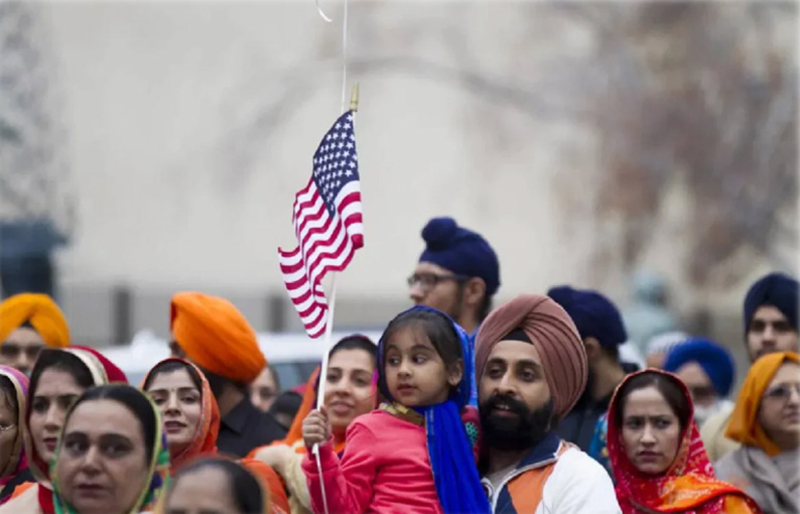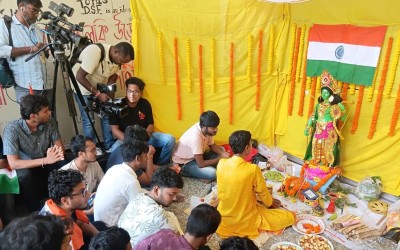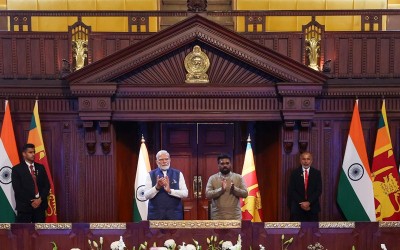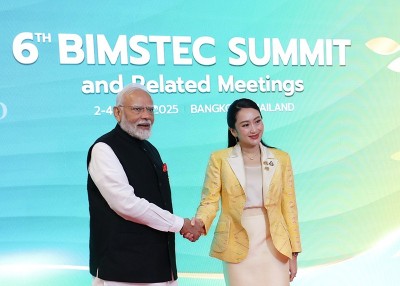 Khalistan
Khalistan
Sikhs in North America: Debunking the Khalistan myth and embracing reality
The specter of “Khalistan,” an independent Sikh homeland, occasionally rears its head, often painted as a widespread movement within the Sikh community.
But beneath the sensational headlines lies a complex reality far removed from this simplistic narrative. While a handful of opportunists continue to play the Khalistan card, exploiting historical grievances and misinformation, the overwhelming majority of Sikhs, both in India and the diaspora, reject this separatist ideology.
While the roots of the Khalistan movement lie in India’s turbulent 1970s-80s, today it finds a mere audience and presence in North America, particularly Canada. Sikhs in India do not wish to be associated with ‘Khalistan’ in any way, because to be honest – Khalistan doesn’t inspire hope. It just idolizes and showcases dreams of a theocratic state – which no one wants in the 21st century. Sikhs in India, and also in the diaspora, are proud of their Indian heritage and want to be part of the India growth story. But why then, does the Khalistan discussion keep happening in North America, especially Canada?
While the roots of the Khalistan movement lie in Punjab’s turbulent 1970s-80s, its presence in North America, particularly Canada, grew due to a confluence of factors:
1. Immigration wave and community building: In the aftermath of the Punjab insurgency, a large wave of Sikh immigrants arrived in Canada. This created spaces for community building, but also presented challenges of acculturation and identity formation. Some, particularly younger generations, grappled with an identity crisis and discrimination by the natives, making them more susceptible to the appeals of the Khalistan movement.
2. Information channels and political landscape: The rise of satellite channels and dedicated media outlets in the 90s catering to the Punjabi diaspora fostered echo chambers where voices could be amplified and historical events reinterpreted through a separatist lens. Additionally, the complex political landscape in Canada, with its emphasis on multiculturalism and minority rights, offered space for fringe groups to find support and legitimacy.
3. Perceived alienation and lack of engagement: Some felt alienation within Canadian society despite its open doors. In this context, the Khalistan movement, though offering simplistic solutions, presented a sense of belonging and agency. Additionally, a perceived lack of engagement by governments in addressing grievances within the community could have also fueled resentment and sympathy for Khalistan.
But the narrative of the pro-Khalistan diaspora is misleading. Pew Research Center’s recent survey found a staggering 95% of Sikhs identify as “very” or “somewhat” proud to be associated with India. This is in stark contrast to the image that the Khalistan separatists try to portray to the youth of the community and the Western media outlets.
It is vital to recognize that the vast majority of Sikhs, both in India and the diaspora, are proud citizens of their respective countries. They are doctors, engineers, entrepreneurs, artists, soldiers, and teachers who contribute to the richness and diversity of their nations. To paint them with the brush of a fringe ideology is not only inaccurate but also disrespectful to their diverse experiences and aspirations.
The true story of the Sikhs is one of resilience, faith, and unwavering commitment to the ideals of peace and harmony. We must acknowledge the historical complexities while focusing on the present reality: the overwhelming majority of Sikhs, in India and beyond, embrace their heritage within the larger tapestry of their respective nations. Only by moving beyond the mirage of Khalistan can we truly appreciate the rich contributions of this vibrant community to the world.
(Photo and text courtesy: Khalsavox.com)
Support Our Journalism
We cannot do without you.. your contribution supports unbiased journalism
IBNS is not driven by any ism- not wokeism, not racism, not skewed secularism, not hyper right-wing or left liberal ideals, nor by any hardline religious beliefs or hyper nationalism. We want to serve you good old objective news, as they are. We do not judge or preach. We let people decide for themselves. We only try to present factual and well-sourced news.







